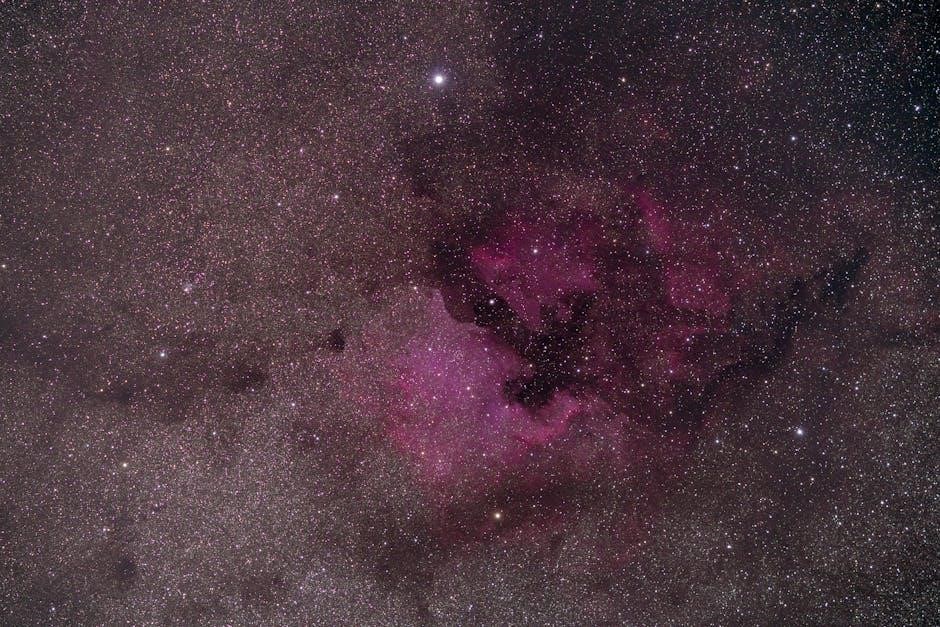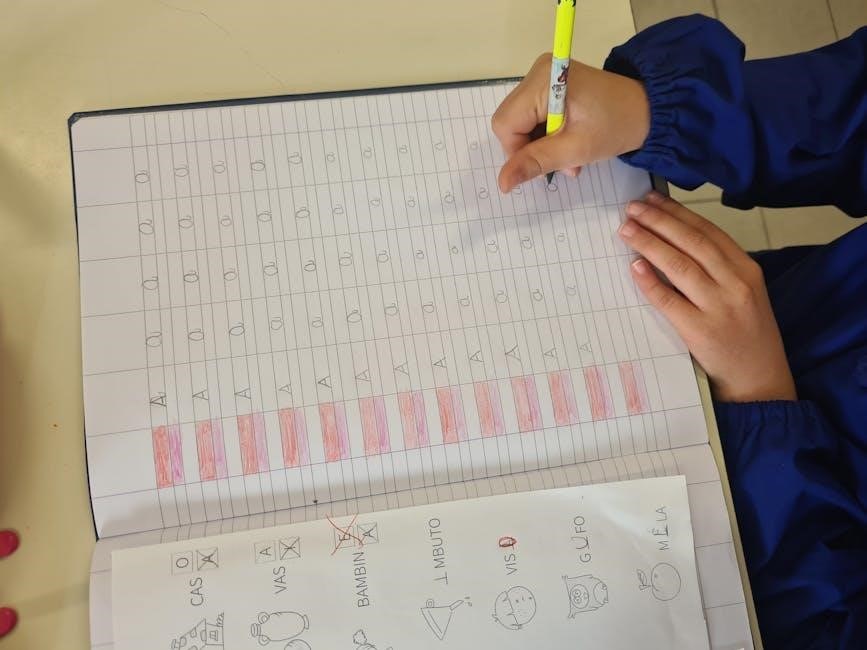College Packing List for Girls: A Comprehensive Guide (PDF Focus)
Prepare for campus life! This guide offers a detailed, printable PDF checklist tailored for college girls, ensuring a smooth and stress-free dorm move-in experience.
Embarking on the college journey is exciting, but packing for dorm life can feel overwhelming! This comprehensive guide, centered around a convenient PDF checklist, aims to simplify the process, especially for young women navigating this new chapter. Transitioning to dorm life requires careful consideration of space constraints and essential needs.
Our focus is providing a detailed, printable resource – a college packing list for girls in PDF format – designed to cover everything from clothing and toiletries to study supplies and personal items. We understand the unique needs of female students and have included feminine essentials.
This isn’t just a list; it’s a tool to ensure you’re prepared, organized, and ready to thrive in your new home away from home. Let’s make move-in day a breeze!
Understanding the PDF Format & Benefits
Choosing a PDF format for your college packing list offers significant advantages. PDFs are universally accessible, viewable on any device – smartphones, tablets, laptops – without requiring special software. This ensures easy access throughout the packing process, from initial planning to final checks.
Our printable checklist is designed for convenience; simply download, print, and physically check off items as you pack. The digital format also allows for easy customization. You can add or remove items to perfectly suit your individual needs and preferences.
Furthermore, a PDF remains consistent across platforms, guaranteeing the layout and formatting stay intact, providing a reliable and organized packing experience.
Clothing Essentials
Packing clothing requires careful consideration for varying weather and campus activities. Include versatile pieces that can be mixed and matched to create numerous outfits. Prioritize comfortable, everyday wear suitable for classes and studying. Don’t forget weather-appropriate outerwear – a warm coat for colder climates, or a light jacket for milder temperatures.
Think about your personal style and what makes you feel confident. Pack enough for at least a week or two, considering laundry schedules. Remember comfortable loungewear for relaxing in the dorm.
A well-planned wardrobe minimizes stress and ensures you’re prepared for any occasion!
Seasonal Clothing Breakdown
Fall/Winter: Pack layers! Include sweaters, hoodies, jeans, warm socks, a winter coat, hat, gloves, and scarf. Waterproof boots are essential if your campus experiences snow or rain. Thermal underwear can be a lifesaver in extremely cold climates.
Spring/Summer: Lightweight clothing is key. Think t-shirts, shorts, sundresses, sandals, and a light jacket for cooler evenings. A swimsuit is useful if your campus has a pool or if you plan beach trips. Don’t forget sunscreen!
Transitional Pieces: Cardigans, denim jackets, and versatile pants can be worn across seasons, maximizing your wardrobe’s flexibility.
Undergarments & Socks
Bras: Pack a variety – everyday bras, sports bras (essential for gym classes or activities), and a comfortable bralette. Consider a strapless bra for certain outfits.
Underwear: Bring enough for at least a week, preferably more, to avoid frequent laundry trips. Choose comfortable, breathable fabrics.
Socks: A generous supply is crucial! Include ankle socks, crew socks, and warm winter socks. Consider compression socks for long walks across campus. Don’t forget fun, patterned socks to express your style!
Sleepwear: Pajamas, a comfortable t-shirt and shorts, or a nightgown – prioritize comfort for restful sleep.
Shoes: Variety & Comfort
Sneakers: Essential for walking to class, the gym, and everyday wear. Prioritize comfort and support for long days on your feet.
Sandals/Flip-flops: Perfect for the dorm showers, warmer weather, and casual outings. Quick-drying materials are a plus.

Boots: Depending on your climate, waterproof boots are vital for rain or snow. Ankle boots offer style and practicality.
Dress Shoes: A pair of dress shoes or heels for events, presentations, or nights out. Choose something versatile and comfortable enough to dance in!
Slippers: Cozy slippers are a dorm room must-have for comfort and warmth.
Toiletries & Personal Care
Essential Toiletries: Pack shampoo, conditioner, body wash, face wash, toothbrush, toothpaste, deodorant, and lotion; Consider travel-sized options initially to save space.
Hair Care: Bring hair ties, brushes, combs, and any styling products you regularly use. Don’t forget heat protectant if you style with heat!
Dental Care: Include floss, mouthwash, and a toothbrush holder. A new toothbrush is a good idea to start the semester fresh.
Personal Hygiene: Don’t forget items like razors, shaving cream, and nail clippers. A small mirror can also be incredibly useful.
Sun Protection: Sunscreen and lip balm with SPF are important, even on cloudy days.
Bathroom Basics
Shower Essentials: A shower caddy is crucial for transporting toiletries to and from the bathroom. Include your shampoo, conditioner, body wash, and a loofah or washcloth.
Towels: Pack at least two bath towels, a hand towel, and a washcloth. Quick-drying towels are ideal for dorm life. Consider a bathrobe for comfort and convenience.
Flip-Flops: Essential for communal showers to protect your feet from germs. Ensure they are slip-resistant for safety.
Hand Soap: A small bottle of hand soap for your sink is a must-have.
Toilet Paper: While often provided, it’s wise to bring a roll or two just in case!
Feminine Hygiene Products
Essential Supplies: Pack a sufficient supply of your preferred feminine hygiene products – pads, tampons, menstrual cups, or period underwear – to last at least a month, accounting for potential delays in restocking.
Discreet Storage: Consider a small, discreet storage container to keep these items organized and private in your dorm room. A zippered pouch or small box works well.
Pain Relief: Include pain relievers like ibuprofen or naproxen for menstrual cramps. Heating pads or hot water bottles can also provide comfort.
Extra Underwear: Pack extra underwear for peace of mind, especially during your period.

Feminine Wipes: Individually wrapped feminine wipes can be useful for freshening up throughout the day.
Makeup & Skincare (Optional)
Personal Preference: If you wear makeup, bring your essential products – foundation, concealer, mascara, lipstick, and brushes. A makeup bag will keep everything organized and prevent spills.
Skincare Routine: Don’t forget your skincare staples! Cleanser, moisturizer, sunscreen, and any specialized treatments (acne cream, serums) are crucial for maintaining healthy skin.
Travel Sizes: Consider travel-sized versions of your favorite products to save space and comply with airline regulations if flying.
Makeup Remover: Pack makeup remover wipes or liquid to thoroughly cleanse your skin before bed.
Don’t Overpack: Remember, you can always purchase additional items later, so prioritize your must-haves!
Dorm Room Essentials
Creating Your Space: Dorm rooms require thoughtful planning! Prioritize items that maximize space and personalize your environment. Bedding – sheets, a comfortable comforter, and pillows – are fundamental for restful sleep.

Decor & Comfort: Add personality with posters, photos, fairy lights, and small decorative items. A cozy rug can define the space and add warmth.
Organization is Key: Invest in storage solutions like under-bed containers, drawer organizers, and a small dresser to keep belongings tidy. A desk lamp is essential for studying.

Practical Items: Don’t forget a laundry basket, a small trash can, and a power strip to accommodate all your electronics.

Bedding: Sheets, Comforter, Pillows
Sweet Dreams are Made of These: Dorm beds are often twin XL, so confirm dimensions before purchasing! Pack at least two sets of twin XL sheets – cotton or microfiber are comfortable choices. A cozy comforter or duvet is crucial for warmth, considering varying dorm temperatures.
Pillow Talk: Bring your favorite pillow for a touch of home, and consider an extra for reading or lounging. A mattress topper can significantly improve comfort on a standard dorm mattress.
Easy Care: Opt for bedding that’s machine washable for easy cleaning throughout the semester. A lightweight blanket is also useful for warmer nights.
Decor & Personalization
Make it Your Own: Dorms can feel sterile, so personalize your space! Photos of family and friends create a comforting atmosphere. String lights add a cozy glow, but check dorm regulations regarding hanging items.
Wall Art & Comforts: Posters, tapestries, or removable wallpaper can transform bare walls. A small rug adds warmth and defines the space. Consider a decorative throw pillow or two for your bed.

Small Touches: Don’t forget a few small plants (if allowed) or a favorite scented candle (battery-operated is often safer). These personal touches will make your dorm feel like home!
Organization & Storage Solutions
Maximize Space: Dorm rooms are notoriously small, so smart storage is key! Under-bed storage containers are essential for off-season clothing or extra supplies. Over-the-door organizers are perfect for shoes, toiletries, or accessories.
Vertical Space: Utilize vertical space with shelving units or stackable drawers. A desk organizer keeps study materials tidy, and a hanging closet organizer maximizes closet space.
Multi-Purpose Items: Opt for furniture that serves multiple purposes, like an ottoman with storage; Collapsible hampers and storage cubes are also incredibly useful for keeping things neat and accessible.

Study Supplies & Tech
Academic Essentials: Don’t forget notebooks, pens, highlighters, and a planner to stay organized. Consider a laptop or tablet for note-taking and research. A backpack is crucial for carrying books and supplies to class.
Tech Must-Haves: Pack your laptop, phone, and chargers – essential for communication and coursework. Noise-canceling headphones are a lifesaver in a noisy dorm. A portable power bank ensures your devices stay charged on the go.
Desk Setup: A desk lamp provides adequate lighting, and a comfortable chair is vital for long study sessions. Invest in a surge protector to safeguard your electronics.
Academic Materials
Notebooks & Paper: Bring a variety of notebooks for different classes – spiral-bound or composition books work well. Stock up on loose-leaf paper, graph paper (if needed), and sticky notes for quick reminders and annotations.
Writing Utensils: Pack plenty of pens (blue and black), pencils, highlighters in assorted colors, and erasers. A pencil case keeps everything organized. Consider a good quality pen for important assignments.
Organization Tools: Dividers for binders, folders, and a planner or calendar are essential for managing coursework and deadlines. A bookbag or backpack is crucial for transporting materials.
Electronics & Chargers
Laptop & Tablet: A laptop is vital for coursework; a tablet can be useful for reading and note-taking. Don’t forget protective cases! Ensure all software is updated before arriving on campus.
Phone & Charger: Your smartphone is a key communication tool. Pack the charger and consider a portable power bank for emergencies. A pop socket can improve grip and usability.
Headphones: Noise-canceling headphones are perfect for studying in noisy dorms or libraries. Bring chargers for all devices! A multi-port USB charger saves space and outlets.
Desk Organization
Desk Lamp: Essential for late-night study sessions, choose one with adjustable brightness. Consider an LED lamp for energy efficiency. A flexible gooseneck design offers focused lighting.
Stationery & Supplies: Pens, pencils, highlighters, sticky notes, and a stapler are must-haves. A pencil case keeps everything tidy. Don’t forget a planner or calendar for scheduling.
File Folders & Binders: Organize coursework by subject. Label everything clearly! Desk organizers, like trays and drawers, maximize space. A corkboard or whiteboard is great for reminders.
Health & Safety

First Aid Kit: A comprehensive kit is crucial, including bandages, antiseptic wipes, pain relievers, and blister treatment. Include motion sickness remedies if prone to travel sickness.
Medications & Prescriptions: Bring any necessary prescription medications with valid documentation. Pack over-the-counter essentials like allergy medicine and cold remedies. Keep a list of all medications.
Safety Items: A small flashlight with extra batteries is vital for navigating campus at night. Consider a personal alarm for added security. Hand sanitizer and disinfecting wipes are essential for hygiene.
First Aid Kit
Essential Components: Your first aid kit should include assorted adhesive bandages for minor cuts and scrapes. Pack antiseptic wipes or solution for cleaning wounds, preventing infection. Pain relievers like ibuprofen or acetaminophen are vital for headaches or fever.
Additional Supplies: Include blister treatment, such as moleskin, for new shoes. Antihistamine cream or tablets can address allergic reactions or insect bites. Don’t forget gauze pads and medical tape for larger wounds. A thermometer is useful for monitoring fever.
Considerations: Tailor the kit to your specific needs and any pre-existing conditions.
Medications & Prescriptions
Prescription Management: Bring all necessary prescription medications in their original, labeled containers. Ensure you have enough to last throughout the semester, factoring in potential delays in refills. Understand your insurance coverage for prescriptions at college.
Over-the-Counter Options: Pack common over-the-counter medications like cold and flu remedies, allergy medication, and digestive aids. Consider pain relievers (ibuprofen, acetaminophen) and anti-diarrheal medication.
Important Documentation: Keep a list of all medications, dosages, and prescribing doctors. Have copies of your prescriptions readily available, especially if traveling.
Safety Items (Flashlight, etc.)
Personal Safety First: A small flashlight is essential for navigating campus at night or during power outages. Consider a personal alarm for added security while walking alone, especially after dark. A whistle can also attract attention in emergencies.
Basic Tools: Pack a small multi-tool or pocketknife for minor repairs. A portable doorstop can provide an extra layer of security in your dorm room.
Emergency Preparedness: Include a portable power bank to keep your phone charged during emergencies. Don’t forget a small first-aid kit (covered elsewhere) and familiarize yourself with campus safety resources.
Important Documents & Finances
Essential Identification: Bring your driver’s license, student ID, and health insurance card. Keep copies of these documents separate from the originals, ideally stored digitally and printed. A passport might be necessary for international students.
Financial Access: Pack your debit and credit cards, along with information for any student loans. Ensure you have access to online banking and understand your budget. Consider a small amount of cash for immediate expenses.
Emergency Contacts: Have a list of emergency contact numbers readily available – family, friends, and campus security. Keep a copy with you and share it with a trusted friend.
Identification & Insurance Cards
Crucial IDs: Your driver’s license is paramount for identification, alongside your student ID for campus access and benefits. Don’t forget your Social Security card – keep it secure! International students require their passports and visa documentation.
Health Coverage: A valid health insurance card is non-negotiable. Understand your policy’s coverage details, including co-pays and emergency procedures. A copy of your insurance information should be readily accessible, both physically and digitally.
Copies are Key: Create both physical and digital copies of all vital documents. Store them separately from the originals to prevent loss or theft-related complications.
Financial Information
Banking Essentials: Bring your debit and credit card information, ensuring you’ve informed your bank of your new address. Consider a student-friendly checking account with minimal fees. A small amount of cash is useful for immediate expenses.
Financial Aid Documents: Keep copies of your financial aid award letter, scholarship confirmations, and any loan documents readily available. Understanding your financial obligations is crucial for budgeting.
Budgeting Tools: Download budgeting apps or create a spreadsheet to track expenses. Knowing where your money goes will help you manage finances effectively throughout the semester. Securely store account numbers and passwords.
Emergency Contact Information
Essential Contacts: Compile a list of crucial contacts – parents, guardians, family doctors, and local emergency services. Include phone numbers and email addresses for quick access during unforeseen circumstances.

Medical Information: Note any allergies, medical conditions, or prescribed medications. This information is vital for campus health services or emergency responders. Consider a medical ID bracelet if applicable.
Campus Security: Save the campus security number in your phone. Familiarize yourself with emergency procedures and reporting systems. Share your emergency contact list with a trusted friend or roommate for added safety.


























































































